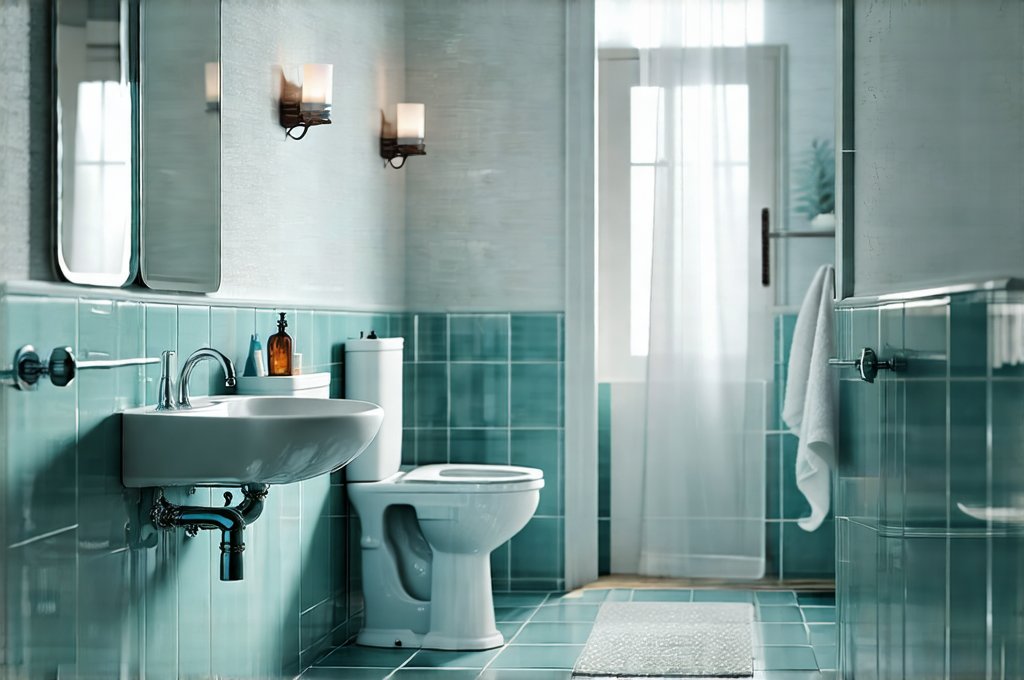The seemingly mundane act of using the bathroom – its frequency, duration, even the associated feelings – can be surprisingly sensitive to our emotional state. While often overlooked in discussions about mental wellbeing, alterations in these habits are frequently reported by individuals experiencing loneliness or disconnection, and may serve as subtle indicators of underlying distress. This isn’t about diagnosing illness; it’s about recognizing that our bodies are deeply interconnected with our minds, and that shifts in physical routines can sometimes mirror emotional ones. Ignoring these changes risks dismissing important signals from within, potentially delaying acknowledgment of deeper needs for connection or support.
The human body operates as a complex system where psychological stress manifests physically. Chronic loneliness isn’t simply an absence of social interaction; it’s a pervasive feeling of isolation that activates the sympathetic nervous system – triggering a cascade of physiological responses similar to those experienced during moments of perceived threat. This prolonged activation can disrupt normal bodily functions, impacting everything from sleep and appetite to digestion and, yes, even bathroom habits. Understanding this connection is crucial for shifting away from viewing these changes as isolated incidents and instead recognizing them as potential expressions of emotional hardship. It’s about fostering a greater sense of self-awareness and compassion towards ourselves when these patterns emerge. If you’re unsure what tests might reveal more, consider how to choose between a scan or lab test.
The Gut-Brain Axis & Emotional Regulation
The profound link between the gut and brain, often referred to as the gut-brain axis, is central to understanding how loneliness impacts bathroom timing. This bidirectional communication highway involves neurological, hormonal, and immunological pathways. Stress and emotional distress – hallmarks of loneliness – significantly influence the composition and function of the gut microbiome, which in turn affects bowel regularity, inflammation levels, and even neurotransmitter production. A disrupted microbiome can lead to various digestive issues including constipation or diarrhea, impacting both frequency and urgency when using the bathroom.
Furthermore, feelings of isolation often trigger an increase in cortisol – the body’s primary stress hormone. Elevated cortisol levels can disrupt normal gastrointestinal motility, leading to either slowed digestion (constipation) or accelerated transit time (diarrhea). This isn’t simply about physical symptoms; it’s also about the emotional toll these changes take. The anxiety and discomfort associated with altered bowel habits can further exacerbate feelings of loneliness and disconnection, creating a vicious cycle. Emotional regulation becomes more challenging when the body is in a state of physiological stress, making it harder to cope with isolation and seek out supportive connections. Understanding hidden gut issues revealed by advanced scans can be helpful too.
The impact isn’t limited to digestive processes. The bladder also responds to stress signals. When feeling anxious or overwhelmed – common experiences for those who are lonely – the urge to urinate can become more frequent, even if there’s no physiological need. This is partly due to increased cortisol levels and a heightened state of alertness that triggers the fight-or-flight response. Essentially, the body prepares for action, and releasing bladder contents becomes part of that preparation, regardless of actual necessity.
Exploring Constipation as an Emotional Shield
Constipation, while often dismissed as a minor inconvenience, can sometimes be a manifestation of emotional withdrawal. It’s not necessarily about physical blockage; it can represent a metaphorical ‘holding on’ – resisting the release of emotions or avoiding vulnerability. When someone is feeling disconnected, they may subconsciously tighten their muscles, including those in the digestive system, leading to reduced peristalsis and difficulty eliminating waste.
- This ‘holding on’ pattern might be unconsciously adopted as a way to maintain control when facing feelings of powerlessness associated with loneliness.
- The act of constipation can also create a physical barrier between oneself and the world, reinforcing emotional distance.
- It’s important to note that this is a complex phenomenon, and constipation has many causes beyond emotional factors. However, in cases where it coincides with periods of increased isolation or sadness, exploring the emotional component is worthwhile.
Addressing this requires more than just increasing fiber intake. Focusing on gentle movement (yoga, walking), mindfulness practices, and emotional expression – journaling, talking to a therapist or trusted friend – can help release both physical and emotional tension. Creating space for vulnerability and allowing oneself to feel emotions, rather than suppressing them, is key to breaking the cycle of constipation as an emotional shield. For those going through menopause or andropause, gut checks can offer valuable insight.
Diarrhea & The Release of Tension
Conversely, diarrhea can sometimes represent an attempt to ‘flush out’ uncomfortable emotions. When overwhelmed with feelings of sadness, anxiety, or grief, the digestive system may accelerate in an effort to rid the body of these internal burdens. This is often accompanied by a sense of urgency and lack of control – mirroring the feeling of being overwhelmed by emotional distress.
- Diarrhea can also be a physical manifestation of the fight-or-flight response, triggered by perceived threats or anxieties associated with social isolation.
- The rapid transit time through the digestive system leaves little room for nutrient absorption, contributing to feelings of depletion and vulnerability – further reinforcing the cycle of loneliness.
Self-compassion is vital when experiencing diarrhea linked to emotional distress. Focusing on hydration, gentle nourishment, and calming activities can help soothe both the body and mind. Identifying and addressing the underlying emotional triggers – through therapy or self-reflection – is crucial for long-term healing.
Urgency & The Need for Control
Increased urinary urgency, even without a significant increase in fluid intake, can be another indicator of emotional distress. As mentioned earlier, cortisol spikes associated with loneliness activate the sympathetic nervous system, leading to increased bladder contractions and a heightened sense of anxiety surrounding bodily functions. This isn’t about having a medical issue; it’s about the emotional amplification of normal physiological processes.
- The constant need to find a bathroom can create a feeling of being trapped or restricted – mirroring the emotional constraints imposed by social isolation.
- It might also be interpreted as an attempt to regain control in situations where one feels powerless, such as when experiencing chronic loneliness.
- This urgency often leads to increased vigilance and hyperawareness of bodily sensations, further fueling anxiety and reinforcing the cycle of distress.
Strategies for managing urinary urgency related to emotional factors include mindfulness techniques (to calm the nervous system), pelvic floor exercises (to strengthen bladder control), and, most importantly, addressing the underlying feelings of loneliness through social connection or professional support. Athletes should consider gut tests ideal for their lifestyle.
Reclaiming Agency & Fostering Connection
Ultimately, recognizing the link between bathroom timing and emotional wellbeing isn’t about pathologizing normal bodily functions; it’s about empowering individuals to understand their bodies as valuable sources of information. Paying attention to these subtle shifts can provide early warnings of emotional distress, allowing for proactive intervention before problems escalate. It requires cultivating a sense of self-awareness and compassion – recognizing that changes in bathroom habits are often signals of deeper needs for connection, support, or self-care.
The key is not to ignore or shame these experiences but rather to view them as opportunities for growth and healing. This might involve seeking professional guidance from a therapist or counselor, exploring mindfulness practices, engaging in creative expression, or simply reaching out to loved ones for support. Reclaiming agency over one’s emotional state requires actively addressing the root causes of loneliness and disconnection – building meaningful relationships, pursuing passions, and cultivating self-compassion. It’s also wise to understand insurance coverage for digestive tests.
It is essential to remember that these are often complex issues with multifaceted origins. While bathroom timing changes can be a valuable indicator, they should never be used for self-diagnosis or as a substitute for professional medical advice. Instead, consider them as prompts for self-reflection and potential avenues for seeking support when needed. The journey towards emotional wellbeing is rarely linear, but by embracing self-awareness, fostering connection, and prioritizing self-care, we can navigate these challenges with greater resilience and grace. Also be aware of air swallowing and its effects on digestive health.


















